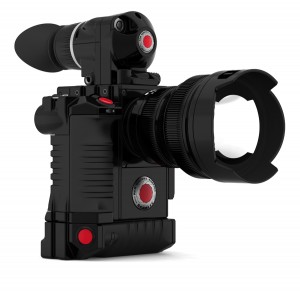 There are things that are known, those which are unknown, and inbetween are the doors of digital perception, when these are opened the world will appear to the viewer as it truely is…infinite.
There are things that are known, those which are unknown, and inbetween are the doors of digital perception, when these are opened the world will appear to the viewer as it truely is…infinite.
Words are power and when arranged in the right way they form phrases, which can become insiprational bits of revolution. The Red Scarlet has been called a DSLR Killer in various online forums, and this naturally makes the mind think twice. DSLR Killer? How does one kill the embodiment of the whole digital photography industry, the marker by which all other digital imaging products are measured? Of course, there area calls of impossibility. What! How can one company challenge the Old Guard of Canikon and repell attacks by the 800 pound Sony DSLR Gorilla?
Red has released the specs of the SCARLET and EPIC Digital Still & Motion Camera (DSMC) systems. The images and specs were released on the reduser.net and included the DSLR-like configuration shown above. What, you want to shoot full-frame 35mm, oh…, no, you want to shoot in full-frame 645, ahhh, ok, you’d prefer to shoot in the digital 617 format today? NO PROBLEM. The new SCARLET and EPIC cameras are completely, 100% modular, upgradable, and fully custimizable to whatever shooting setup you want. The base SCARLET Brain (imaging sensor body) will go for only 2500 USD. Of course you need to add on a lens, viewfinder, etc. But the SCARLET now fullfills the desire of many serious photogrpahers, because you can build the camera you want to use. Detractors have said to compete with Canikon RED is at a disadvantge, since they need lenses to compete. Well, RED offers a full range from f/2.8 zooms to f/1.5 primes including some with image stabilization – simply awesome. Or, you can just get a Canon or Nikon lens mount and use any of the millions of compatible lenses already on the market. YES! The SCARLET allows three lens mounts, including Canikon and RED. At the heart of the new SCARLET and EPIC systems is the ability to choose the sensor size you need. Sizes include 2/3″, 35mm full frame, and then go on up to 186×56 mm. In megapixels this means a range from 4.9 up to 261 MegaPixels. The Mysterium-X, Monstro, and Mysterium sensors offer A/D conversions from 12-16 bit, and 11-13 stops of dynamic range. The maximum frames per second are 25-120fps. And since the system is fully modular, you can even do things like putting two Brains together and shooting directly for 3D with a stereo camera setup. And of course, since the system is modular, as sensor technology improves, you just buy a new one, a concept which should have been implemented 4 or 5 years ago by Nikon or Canon.
RED of course, has an advantage against the old skool camera makers. They are a very forward looking company, which has designed their cameras exactly how new technology should be developed – without the lethargy of an old skool company which simply increments old designs. Why do we fly in airplanes with static wings while birds have aeroelastically adaptable wing structures? Why do we produce energy from coal when there are abundent sources of clean power? Because too often companies introduce technology in small increments instead of challenging the concept of their product line. As a technology fanatic and one who thinks in moving pictures instead of still images, it’s obvious that the SCARLET is, in fact be the first step in killing off the DSLR. The truth is, the DSLR has been heading towards the meat packing district for sometime now. The resolution limit of DSLRs, has for all practical reasons been reached. The funtionality and draw of the DSLR has been that if offers higher picture quality than small compacts, but is more affordable and functional than medium format digital back systems. But things change.
The Sony A900 now offers near medium format back quality in a small and relatively affordable package, while the next generation of pro high resolution handheld cameras are coming in the form of the Leica S2 and Nikon D4 (or whatever Nikon calls it), the former already released, and the latter rumored to be ready for 2009, and both having a larger than full-frame 35mm sensor. With advancements in the pocket camera market, such as the Panasonic LX3, Ricoh GX200, Canon G10 and a host of followers, why do people need the DSLR construct? The Canon 5D-II is only a relevant design because of it’s video capabilies. Most people will be buying it to mix photo and video in one package, or as a high quality HD camera. I would rather have a high tech cinema camera that shoots stills than a high quality DSLR which does video. So why do DSLRs exist at all? A long time ago in a world very close to the Earth, the ability to develop chemicals on paper to reveal an image was far easier to realize than painting a portrait. The large format film camera was replaced with medium and now the small 35mm format film cameras, and now that digital imaging has enabled the packaging of high-quality video in a hand-held package, I wonder, what is the point of shooting with a DSLR, an instrument which is simply the latest design iteration to solve the problem of communicating with visual imagery?